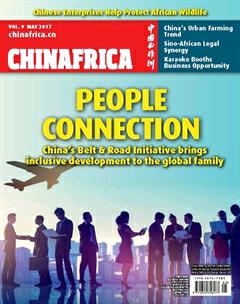Filial Piety-Ancient Chinese Tradition
The ancient humanistic philosophy of Confucianism continues to remain an intrinsic part of the fabric of Chinese scholarly tradition, thought and societal ideology. Filial piety is just one of the many teachings of ancient philosopher Confucius more than 2,500 years ago.
Confucius said, “There are three degrees of filial piety. The highest is being a credit to our parents; the second is not disgracing them; the lowest is being able to simply support them.”
These sentiments signaling the care of ones parents as a key priority in a childs life may be in stark contrast to Western values that hold parents forever accountable for the care, love and assistance of their offspring. Former folklorist, Alan Dundes, surmised these differing schools of thought using American ideals as an example. “Ancestor worship, or filial piety so characteristic of Asian cultures, for example, does not really resonate with Americans who favor children, not grandparents.”
According to Confucianism, a child must devote their adult life to the servitude of their retired parents. Traveling without parents was discouraged and children were taught to only do so if it was of absolute necessity. Under these circumstances, children were also required to ensure that their parents were left under the care and supervision of an appropriate person and for a restricted period of time with the promise of their return.
Unlike aging parents in the West who typically dont like to admit their age and prefer to remain independent, aging Chinese parents take great delight in helping raise their grandchildren while being revered and cared for by their own children. Old age comes with its perks and is not to be shunned but celebrated- even longed for with great anticipation. Grandparents are honored and doted upon and this reverence transcends death through posthumous sacrificial offerings.
In traditional Chinese society, the interests of individuals come under the submission of their parents. The welfare and harmony of the family are to be protected and prioritized. Parents have absolute authority and all relations are based on blood bonds. This embodies the ethical concept at the core of “filial piety.”
Confucius concept of humaneness is the ultimate goal of his philosophy. However, this goal begins with filial piety. The main source of our knowledge regarding the importance of this goal is The Book of Filial Piety. In this work, Confucius regards filial piety as an unalterable principle and declares it an ethical core value.
Filial piety contains three features. The first is to show filial respect to ancestral family lines in order to secure a strong and stable blood relationship across generations. Children have to continue ancestral undertakings, customs and traditions.
The second feature states that children must obey their parents will and support them. Confucius taught that children should consider it a moral obligation to look after their parents. They should not only provide sufficient financial support during their lives, but also attend to the emotional well-being of their parents.
Third, filial piety requires that children achieve good social standing and power. By achieving a high standard of living and status within a community, their ancestors name and honor are upheld. Only when children accomplish these three requirements, can they fulfill their filial piety.
A child providing for their parents embodies a fundamental value in Chinese tradition. It reciprocates the nurturing functions between parents and children. For thousands of years, it has been natural for the Chinese to equate“having a son to alleviate old age and accumulating grains to alleviate hunger.”In contrast to Western values, every Chinese person depends on the family from birth to death.
These bonds run through the blood linage of relatives on the paternal side creating a patriarchal society where Chinese parents are supported and served by their sons rather than their daughters. Due to these kinds of relationships and the principles that support it, one of the moral ethical standards in the Chinese society has become the extent to which a child can provide for their parents.
Chinas previous one-child family planning policy had resulted in more single-child families. Young married couples often bear the responsibility for both sets of parents, causing the duty of the children to become heavy-laden.
When a single child does not live with their parents or works in another city, retired parents will inevitable end up living alone. Although living conditions and life quality of the elder generation have become a hot topic, finding solutions to these problems will take time while the Chinese social security system improves. Until then, elder Chinese parents will have to depend on their children.

